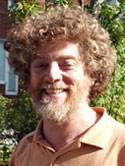Postal address: Box 280, SE-171 77 Stockholm, Sweden
Visiting address: Nobels Väg 16, Solna
Web page: http://ki.se/en/mtc/startpage
 Contact person: Professor Ute Römling, Leader of the research group on Multicellular behavior in Enterobacteriaceae, phone: +46 (0)8 5248 7319. Web page about Prof Römling and her research group.
Contact person: Professor Ute Römling, Leader of the research group on Multicellular behavior in Enterobacteriaceae, phone: +46 (0)8 5248 7319. Web page about Prof Römling and her research group.
Prof. Römling is also Deputy Head of the Dept. of Microbiology, Tumor and Cell Biology, and co-ordinator of a European Commission funded project at MTC, called IMO-Train. This project makes it possible for 10 young bright researchers from other countries to do their PhD training in Sweden. IMO stands for ”Infection models beyond cell culture”.
Research connected to South Asia
In November 2005, Professor Ute Römling and her research group received SEK 1 million as a two-years grant (2006-07) project coordinator) from Sida’s Developing Country Research Council for a project titled ”Role of Biofilm on the Survival and Spread of Toxigenic Vibrio cholerae and Salmonella enterica in the Natural Aquatic Environment of the Bay of Bengal. More information about the Sida grants 2005.
Project abstract: Vibrio cholerae and Salmonella Typhi are major world-wide pathogens causing diseases due to inefficient hygienic standards. For both pathogens, it is hypothesized that biofilm formation in aquatic environments is a mode of transmission and persistence. Thus to understand disease outbreaks better we want to investigate the role of biofilm formation in the persistence and ecological niche occupation of the water-born pathogens, Vibrio cholerae and Salmonella Typhi in natural aquatic habitats.
 The project was carried out by the then PhD candidate Mohammad Abdul Kader (photo to the right). Dr. Abdul Kader later founded the company Viola Vitalis, and is now its CEO. Viola Vitalis was established in 2005 with the aim of providing innovative and high quality nutraceuticals for the marginalized population, focusin largely on Bangladesh. The healthcare solution brought by the effort of Dr. Kader and the team of Viola Vitalis has been highly acknowledged in different documentaries in national and international television. He has received the ‘Change Maker’ award from Tällberg foundation in 2010 at Rework the world summit. More information about Viola Vitalis.
The project was carried out by the then PhD candidate Mohammad Abdul Kader (photo to the right). Dr. Abdul Kader later founded the company Viola Vitalis, and is now its CEO. Viola Vitalis was established in 2005 with the aim of providing innovative and high quality nutraceuticals for the marginalized population, focusin largely on Bangladesh. The healthcare solution brought by the effort of Dr. Kader and the team of Viola Vitalis has been highly acknowledged in different documentaries in national and international television. He has received the ‘Change Maker’ award from Tällberg foundation in 2010 at Rework the world summit. More information about Viola Vitalis.
Since 2000, Dr. Kader has been involved with several research groups and worked as health coordinator and scientist in Wenner Gren Centre, Strategic Centre for Organic Electronics, Swedish Medical Nanoscience Center and Karolinska Institutet. Dr. Kader was the principal investigator in various studies including Feasibility of Human Milk Banking in South America, Feasibility of Biosensors detecting Arsenic with Helmholtz Centre for Environmental Research (UFZ, Leipzig, Germany). He also worked in the establishment of satellite clinic integrated with Human Milk Bank in Chile in 2010 together with Miris AB in Uppsala, Sweden. He was involved in teaching and has supervised many students from different institutions.

In November 2015, Prof. Ute Römling received SEK 1.2 m as a three-year (2016-18) Swedish Research Links grant, provided by the Swedish Research Council, for a Pakistan related project entitled ”Development of Antibiofilm and Antimicrobial Strategies in Pathogens relevant for Developing Countries”. The project has a Pakistani collaboration parter, Dr Iqbal Choudhari.
Project abstract: In developing countries, infectious diseases are still a major cause of morbidity or mortality. and in industrialized countries, they contribute to life quality. Biofilm formation is a significant virulence factor in 60-80% of the human microbial infections. Biofilm formation also is a cause of treatment failure, as biofilm forming cells are tolerant to antibiotics and the actions of the immune system. As established antibiotics score mostly insufficient, treatment strategies for biofilm forming bacteria are urgently required. In this project, biofilm formation of relevant pathogens will be analyzed by molecular and system biology methods, a screen for anti-microbial compounds will be performed and the mode of action of anti-microbial compounds will be analyzed on biofilm forming and multdrug resistant bacteria.
The study will be extended to clinical isolates to demonstrate generality of the findings. Pakistani and Swedish scientists’ experts will perform mutually beneficial collaborative research projects, visit to establish novel collaborations on both sides and to exchange ideas and knowledge to educate young researchers to work on basic scientific discoveries of infectious diseases that eventually translated into new therapies. With the support of Swedish research links, reciprocal educational workshops and seminars and hands-on trainings on techniques in infectious diseases will also be organized to establish a long-term research-oriented collaborative network. More information on the Swedish Research Links grants 2015.
Professor Roland Möllby is also working in the Dept. of Microbiology, Tumor and Cell Biology (MTC), heading a research group within the Biomedical Ecology field. He has run scientific projects in Bangladesh for many years and later in Mozambique, Nicaragua and in Iran. He has performed research on pathogenic mechanisms in Staphylococcus aureus infections, Urinary tract infections, Diarrhoeal diseases and on complex floras, like the human normal flora. He is one of the founders of the PhPlate Microplate Technologies AB, which developed the PhP biochemical fingerprinting system and has patented the MARA system for testing of environmental toxicity using bacteria. More information about the research group.
 Professor Martin Rottenberg is heading a research group (along with Prof. Hans Wigzell) within the Immunology research node field. His research focuses on dissection of cellular immune responses to mycobacterial infections in mice, reconstituted de novo with human myeloid and lymphoid cellular lineages.
Professor Martin Rottenberg is heading a research group (along with Prof. Hans Wigzell) within the Immunology research node field. His research focuses on dissection of cellular immune responses to mycobacterial infections in mice, reconstituted de novo with human myeloid and lymphoid cellular lineages.
In November 2008, Prof. Rottenberg received SEK 720 000 as a three-years research grant from the Swedish Research Links programme (funded by Sida and the Swedish Research Council) for a Pakistani related project titled ”Regulation and role of “Suppressor of Cytokine Signalling” proteins in the outcome of infection with Mycobacterium tuberculosis”. The collaboration partner on the Pakistani side is Dr Zahra Hassan from Aga Khan University in Karachi. A PhD candidate, Kiran Iqbal, was also involved in the project. More information on the Swedish Research Links grants 2008.
Project abstract: Tuberculosis is a severe infectious disease caused respectively by the intracellular bacteria Mycobacterium tuberculosis. One third of the population worldwide is infected with M. tuberculosis and new infections occur at a rate of one per second. However, only about one in ten of the M. tuberculosis-infected individuals will develop disease TB. TB most commonly attacks the lungs (as pulmonary TB) but can also affect the central nervous system, the lymphatic system, the circulatory system, the genitourinary system, bones, joints and even the skin. In the rest of the infected individuals, bacteria are not completely eliminated and the infection will persist in an asymptomatic form. The project will investigate if SOCS-1 and a close “relative” SOCS-3, can be involved in an impaired clearance of the infecting bacteria and thereby in development of latency but will also benefit the host by inhibiting severe inflammation. The Pakistani partner will compare the levels of SOCS1 and a close “relative” SOCS-3 in blood cells from patients with latent TB, or with pulmonary and extra-pulmonary active TB, to determine if these molecules are related to their susceptibility to disease. The outcome of this project will be a novel, clinical and experimental in depth assessment of the role of SOCS molecules during mycobacterial infections. It will contribute to the improvement of the design of specific vaccines, to the prevention of severe TB and to a better understanding of the relationships between the invading bacteria and the host immune system. More information.
Vinnova/DBT programe on Treatment of Tuvberculosis
 In June 2009, Sweden and India decided to jointly support research in tuberculosis. The Swedish Governmental Agency for Innovation Systems (VINNOVA) and the Department of Biotechnology (DBT), Ministry of Science and Technology, India, agreed to support top level research co-operation between Indian and Swedish scientists in the field of ”Biology, diagnosis and treatment of Tuberculosis”. The programme is one of the first bilateral co-operations, based on joint funding, between the two countries. Under this scheme, VINNOVA funds the Swedish research teams and DBT the Indian side. VINNOVA is committing around SEK 16 million to this program. More information on the Indo-Swedish collaboration project.
In June 2009, Sweden and India decided to jointly support research in tuberculosis. The Swedish Governmental Agency for Innovation Systems (VINNOVA) and the Department of Biotechnology (DBT), Ministry of Science and Technology, India, agreed to support top level research co-operation between Indian and Swedish scientists in the field of ”Biology, diagnosis and treatment of Tuberculosis”. The programme is one of the first bilateral co-operations, based on joint funding, between the two countries. Under this scheme, VINNOVA funds the Swedish research teams and DBT the Indian side. VINNOVA is committing around SEK 16 million to this program. More information on the Indo-Swedish collaboration project.
Four Indo-Swedish projects, out of a total of 15 proposals, were selected by DBT and VINNOVA and will receive funding for the period 2009–12. More information.
Dr. Markus Maeurer at MTC, was selected for a project entitled ”Biology of gene-deleted M. tuberculosis strains – immunological marker profiling”. The main collaboration partner on the Indian side was Dr. Nagaraja Valakunja, Department of Microbiology and Cell Biology, Indian Institute of Science (IISc) in Bangalore.